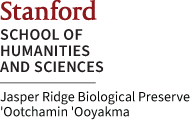Parmesan C, Singer MC, Wee B, Mikheyev S (2023) The case for prioritizing ecology/behavior and hybridization over genomics/taxonomy and species' integrity in conservation under climate change. Biological Conservation 281:109967. https://doi.org/10.1016/j.biocon.2023.109967
Climate change reinvigorates two debates: first, about relative roles of taxonomic, genetic and phenetic criteria in prioritizing entities for conservation and, second, on the role of hybrids in biodiversity assessments, as climate-change-induced range shifts create sympatry between formerly allopatric species/subspecies, thereby generating novel hybrids. We argue that rapid climate change necessitates a shift in the ethical balance sheet for conservation prioritization. Here we use the extensive ecotypic variation in a climate-sensitive butterfly, Euphydryas editha, to illustrate a case in which conservation biologists choosing extant populations as sources for reintroductions to extinct sites, translocations to novel sites, or genetic rescue of inbred populations should first select populations with appropriate phenotypes for climate adaptation and preferences for host and habitat and only then, within that group, rely on subspecies identity or genomic similarity between source and target populations. Preferences evolve rapidly, and we show that they differed sufficiently between an endangered subspecies and potential sources genomically close to it that restoration efforts would be doomed. Conversely, introductions from genomically more distant, ecologically similar populations would succeed and hybridize. Evolutionary biologists have argued that hybridizations, whether caused by climate change or genetic rescue projects, may be essential for retaining genetic diversity and adaptive potential at species/genus level. Conservation practitioners, in contrast, tend to oppose genetic change, arguing to preserve “purity” of existing groups. Our example of the role of climate change in conservation of a species with rapid evolution of critical traits and a mosaic pattern of local adaptation supports the evolutionary biologists' argument. [link to publication]



